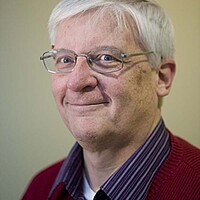A career in pre-Broadway hits
Loading...
Michael Price has spent 46 years running one of the top regional theaters in the United States. Under his guidance Goodspeed Musicals has originated shows such as “Annie” and “Man of La Mancha” that have gone on to become theater classics.
But he also knows audiences don’t want to just revisit “museum pieces.” This spring, for example, Goodspeed is reviving the 1955 musical “Damn Yankees” but adding a twist: The downtrodden team trying to bring down the mighty New York Yankees isn’t the Washington Senators, as originally written, but the Boston Red Sox. It’s a keen marketing move for a theater located in East Haddam, Conn., midway between the two cities. His theater sits on “the fault line between the Yankees and the Red Sox,” Mr. Price says. “Audiences are loving the show.”
Price, who is the dean of artistic directors in American professional theater, has produced more than 200 musicals, including 75 world premières. Nineteen of them have transferred to Broadway, a mere 100 miles to the south, where they’ve garnered 13 Tony Awards and 33 Tony nominations. Goodspeed itself has received two regional Tony Awards, the first regional theater ever to be honored twice.
Price has announced he will retire later this year. But not before he helps stage a 50th anniversary production of “Fiddler on the Roof” and premières “Holiday Inn,” a new stage musical based on the classic 1942 film starring Bing Crosby and Fred Astaire.
In his four decades-plus, Price has seen Goodspeed grow “from a sleepy eight-week season” to an enterprise that includes two venues and two mandates. The Goodspeed Opera House in East Haddam, a small-but-elegant jewel built in 1876 with views of the Connecticut River, was joined in 1984 by a second stage in a converted knitting-needle factory in nearby Chester, Conn.
The mission of the two stages is to revive Broadway shows that deserve a new look and to introduce original new musicals that might become future hits.
Though styles and audiences have changed, “The two most important parts of a musical do not change,” Price says. First, “Is the story compelling?... And the second is ‘Does the music also mean something to you, does it take you further along the path of understanding the story?’... You need both of them in sync at the same time.
“'Phantom of the Opera',” he notes, “is a very old-fashioned musical, but it speaks to people – it’s now 30 years on Broadway.”
What he most enjoys about the American musical is the “magic” it can create, Price says. He loves to cook up a new show. “If I were a chef, I’d say, umm, the soup smells good, and it tastes good. And I like stirring the pot.”
Goodspeed productions are able to draw on the wealth of acting talent in nearby New York. But Price has never fallen victim to the temptation to headline shows with well-known film or television actors as a gimmick to draw an audience. “Once you do that .. you become hostage to the ‘who’s in it?’ question,” he’s say. “We want to talk about the musical we’re doing, not the actor who’s portraying the role.”
Some of his favorite shows were flops (though he won’t name them). When he’s producing a show like “Annie” or “Man of La Mancha” he gives no mind to whether it might one-day become a Broadway hit. “We didn’t do them because we thought they’d become staples of American musical theater,” Price says. “We did them because they said something to us. We liked the music. We liked the story. And that’s how we pick our new productions – on the merits of the piece.”
His theatrical roots stretch back to his boyhood in Chicago, where he started out as a child actor. Later he worked behind the scenes, becoming a stage hand, a lighting designer, and eventually a stage manager. An early mentor gave him advice that’s helped him through the years. “He said get out in front and see what the scenery looks like from [where the audience sits],” Price recalls. “All the scenery looks the same from the back side.”
Though the Goodspeed Opera House is an elegant venue, its stage (and seating capacity) is tiny by Broadway standards. That makes staging big dance numbers a special challenge.
“We’re in a very tight space onstage. Every production we do uses a shoehorn to get it into place,” he concedes.
But that doesn’t mean he skimps on actors.
“We end up with about the same number of actors [in a production] that you have in a Broadway show” – about 22 to 24 on average, he says. “We probably have the greatest ratio of actors to seats of any professional theater in America.”
In his retirement Price will have more time to spend with his grandson in Brooklyn, N.Y. And he’ll have time to relax and see more musicals as an audience member. When he goes to productions that aren’t his own, he says, he doesn’t analyze the productions. “I go as a patron and to enjoy myself. Not as a critic.”








